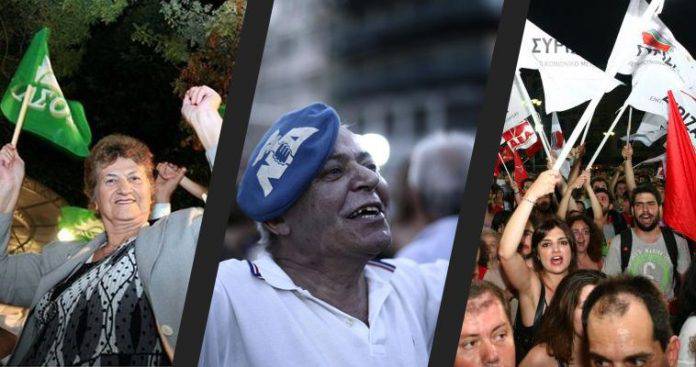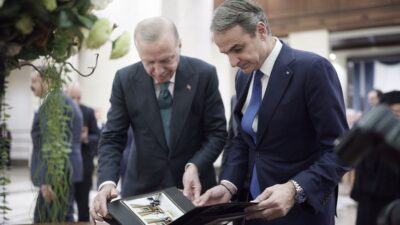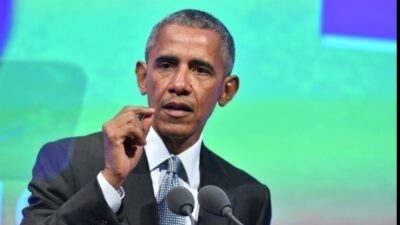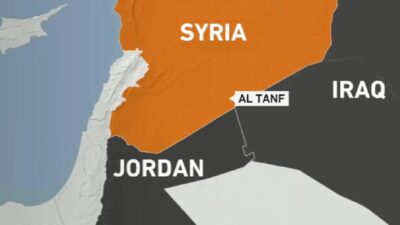Stavros Lygeros: Tribes/parties, the Executive State and a Presidential Republic
06/10/2020
The need for political leaders to arouse party patriotism in order to strengthen the unity and militancy of their party is understandable. So is their attempt to fish for votes. We saw both in the period before the European elections and before the national elections. We see them in less intensity and in the intervening period since then, despite the difficulties that arose (Greek-Turkish face off, pandemic, and economic deterioration).
It would be naive, then, to expect the parties and their leaders to show objectivity with fair judgments. Their role is different. But everything has a limit, which, as the facts constantly show us, has long since been torn down. The continued – albeit to a lesser extent – acceptance by the society of the wooden-language party discourse is not only due to political primitiveness. It is also associated with the high degree of partisanship of the institutions.
After the fall of the dictatorship in 1974, the parties played a key role in shaping and operating the political system, but also an excessive and suffocating control over almost the entire grid of public life. The parties soon degenerated into mechanisms of mediation, management, and distribution of power at all levels. This degeneration gradually led to atrophy in the production of policies, which is their main mission.
This does not mean that the parties lack ideological and political views. Opinions are circulating, and in fact the parties have been and remain significantly heterogeneous at this level. Ideological and political heterogeneity, however, did not threaten or impinge on the unity of the ruling parties. It is neutralized by centrifugal forces, such as tradition, the spirit of a “party/guild”, the network of patron – client relations and of course the distribution or the expectation of the distribution of power. Especially the big party mechanisms are fully aware that only if the organizational (not ideological-political) unity is maintained can they claim power.
Tribes/parties
The parties are supposed to be voluntary associations of citizens based on ideological-political preferences, which try to programmatically express the needs and aspirations of social strata and currents. The reality, however, is more complicated and less innocent. Especially the ruling parties tend to degenerate into regime formations, which in one respect resemble tribes and in another corporations.
This had become obvious when PASOK and ND dominated the political scene. The vast majority of the officials of both parties were somewhat dependent and benefited from their relationship with the government. This did not leave much room for political independence and much more for confrontation with the leadership. SYRIZA followed the same path, especially after its split in the summer of 2015, although within the party there is an internal party opposition with ideological rather than political characteristics.
The tribal parties are largely responsible for the fact that in practice there is no separation of powers as provided by the Constitution. The legislature is anything but independent. It has come under the almost absolute control of the executive. The cases of differentiation of co-opted MPs from the government line are hard to find, although they participate little in its formation. Only in exceptional cases, when, for example, party unity is threatened, or the leadership is challenged, does the role of MPs acquire decisive political importance.
The reason why the legislature has become completely dependent is that every member of parliament sees his or her parliamentary office not as an autonomous political mission, but as a stepping stone to his or her ministerial appointment. In other words, she/he feels more like a candidate for the current or tomorrow’s executive branch than an active member of the legislature. This is not just a personal ambition. It is the logic of the clientilistic system that shaped these mentalities and attitudes. This was absolutely true for PASOK and ND. The same is now partly true – with some peculiarities – for SYRIZA.
The MP as obedient “employee”
If a Member of Parliament does not manage to become at least a Deputy Minister, the tendency of his voters is to consider him almost a failure, because he does not have much opportunity to curry favors for them, because they feel that – through him – they do not have access to power, even delusionally. Consequently, the MP’s vital need to be re-elected pushes him/her to put aside any ideological-political disagreements with the leadership and to behave like an obedient “employee” seeking promotion.
It is true that in normal times the power of an MP is limited. Even at the level of legislative work, the ministers have the first and foremost say. They are the ones submitting bills, which the incumbent MPs are obliged to vote on. In addition, Parliament has long ceased to be the main field of political controversy, where ideas and politicians are tested and distinguished.
MPs from all parties, especially the younger and less prominent ones, are suffocating. Rarely are they given the opportunity to speak and rarely take responsibility for participating in a parliamentary debate. Usually, their role is limited to raising their hand or, to be precise, pressing the electronic button during a vote.
An executive state equals informal presidential power
All of the above are additional arguments for the need to seriously discuss the adoption of the Presidential Republic. In the case of Greece, such a change would create the conditions for the independence of the legislature, so that it can function as a real counterweight to the current omnipotence of the executive.
Today, the legislature is a servant of the executive, with the result that the principle of the separation of powers has been essentially demolished. The adoption of the guise of a Presidential Republic would also facilitate the downsizing of partisanship. This, however, is a big debate that probably is not going to happen, although it should.
Mitsotakis may not have raised the issue of the transition from the Parliamentary to a Presidential Republic, but in practice he has shifted the center of gravity of power. The center of political power is no longer in the ministers and ministries, as is usually the case, but in the mechanism that he has created around the prime minister. By the logic of the Executive State, the system became much more premier-centric, to the extent that it resembled presidential power.





